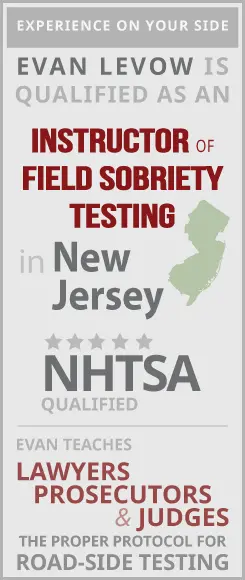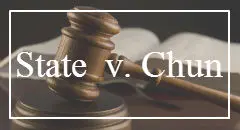A NEW JERSEY DWI DEFENSE LAW FIRM
CALL US FOR A FREE CONSULTATION
877-735-2288
MENU
- DWI FAQs
- Why Hire DWI Lawyer Evan Levow?
- What Happens After A DWI Arrest?
- DWI Vehicle Stops
- Proving Intoxication And DWI Testing
- Refusing A Breath Test
- New Jersey DWI Laws
- Cost Of A DWI
- New Jersey DWI Penalties And Consequences
- Multiple DWI Offense
- Commercial Vehicle Or CDL DWI
- Underage DWI
- DWI Based On Drugs
- Boating While Intoxicated
- Frequently Asked DWI Questions
- ATTORNEYS
- Evan M. Levow, Esq.
- Videos Of Evan
- Meet Evan - Your DWI Lawyer
- Defending a DWI Case in New Jersey
- Frequently Asked Questions in New Jersey DWI Cases
- State vs. Chun: The Biggest Case in New Jersey DWI History
- Technical and Scientific Defenses in an Alcotest Case
- Evan Levow Urges NJ Supreme Court to Scrap Alcotest
- CLE Where Evan Reviews New Breath Testing Machine
- RESULTS
- TESTIMONIALS
- DWI RESOURCES
- 23 Ways To Challenge A New Jersey DWI Guide
- 10 Biggest Mistakes Most People Make After A DWI Arrest
- 55 Things You Need to Know about Your New Jersey DWI Case
- 7 Ways To Save Your New Jersey Driver’s License
- 14 Police Mistakes That May Help Your DWI Case
- Is Your DWI Lawyer Making These 9 Mistakes?
- 12 Cues Used To Detect Drunk Drivers At Night
- DUI / DWI Map: New Jersey Checkpoint Locations
- Out Of State DWI In New Jersey
- Pennsylvania Driver DWI In New Jersey
- CONTACT
close menu



